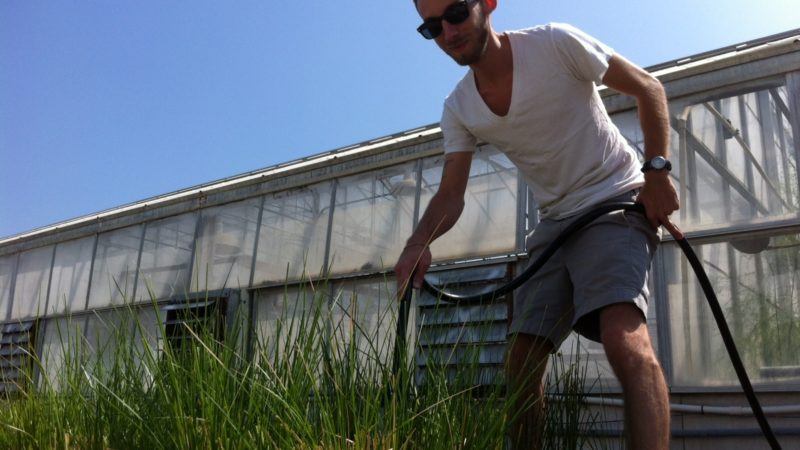Human activities are dramatically impacting ecosystems worldwide due to air pollution – and resulting changes to climate and nitrogen cycling – and the spread of invasive, nonnative plant species. These drivers of global change may have strong and interactive ecological effects, but the evolutionary impacts of these factors are poorly understood. Previous research has shown that invasive plant species may be particularly successful under increased nitrogen availability and drought conditions, but it is unknown if these species have responded evolutionarily to these factors and whether these adaptations have or will contribute to invasion success. La Kretz postdoc Dr. Justin Valliere is currently exploring potential adaptation to nitrogen pollution and climate in common invasive plant species of California by examining potential differences in plant functional traits among different populations of these species throughout southern California. This study will have important implications for invasive plant management under predicted global change.
Related Publications


